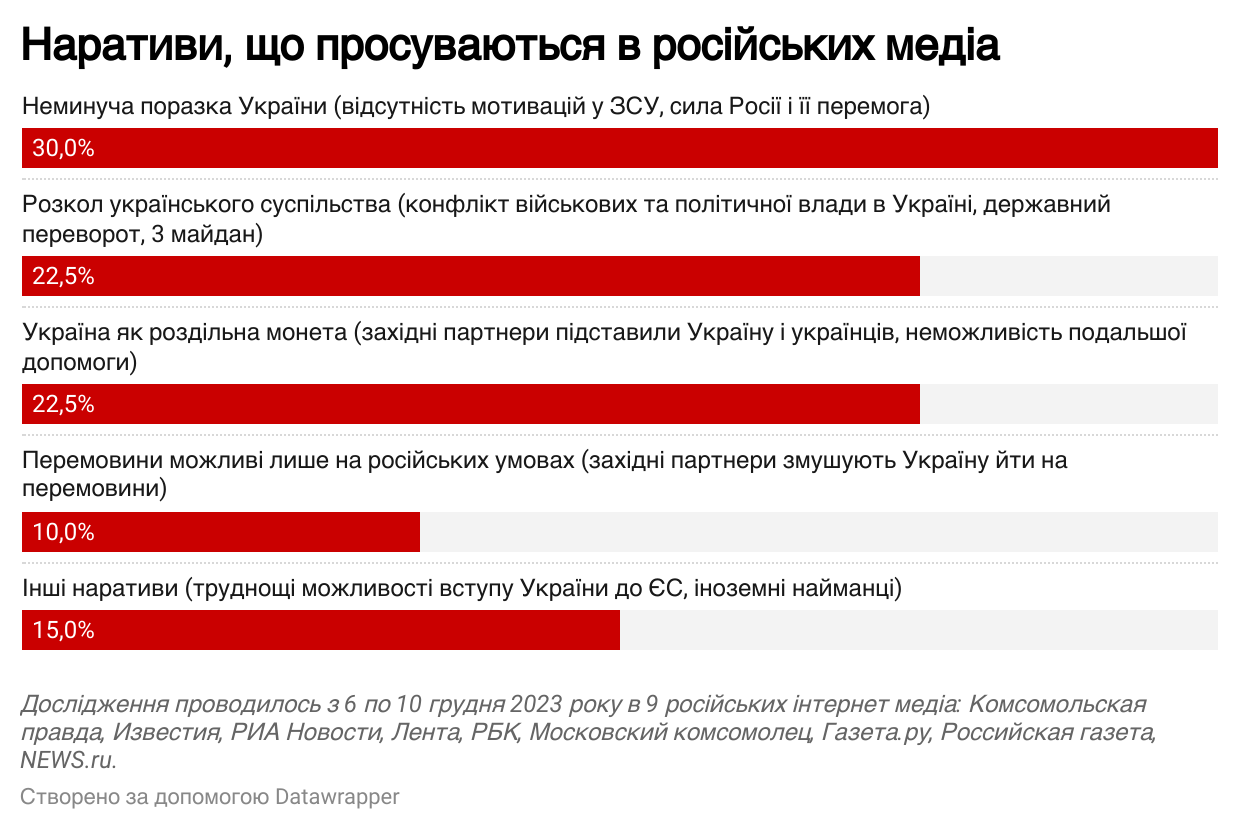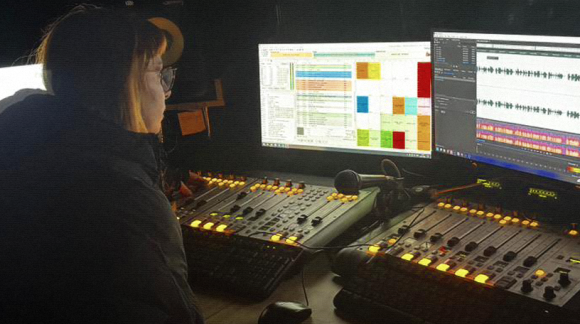In the recent months, the most popular narrative in the top Russian online media is Ukraine’s inevitable defeat in the war with Russia: it accounts for 30% of all the narratives endorsed by the media.
Two others – the “rift in Ukrainian society” narrative and the “Ukraine as a bargaining chip” narrative – rank second, accounting for 22.5% each.
These are the results of the IMI’s December 2023 study covering nine popular Russian online media.

Narratives pushed by the Russian media: Ukraine’s inevitable defeat (lack of motivation in the UAF, Russia’s power and victory) – 30%; a rift in Ukrainian society (a conflict between the military command and the political leadership, a coup d’état, a third Maidan) – 22.5%; Ukraine as a bargaining chip (the Western partners have betrayed Ukraine and Ukrainians, further aid is impossible) – 22.5%; Peace talks are only possible on Russia’s terms (the Western partners are pushing Ukraine into peace talks) – 10%; Other narratives (issues with Ukraine’s EU accession, foreign mercenaries) – 15%. The study took place on December 6 – 10, 2023 and covered 9 Russian online media outlets: Komsomolskaya Pravda, Izvestia, RIA Novosti, Lenta, RBK, Moskovskiy Komsomolets, Gazeta.ru, Rossiyskaya Gazeta, NEWS.ru.
Diagram by the IMI.
According to the IMI expert Olena Holub, there has been a shift in Russia’s information war on Ukraine.
“Currently, the propaganda has focused on softening its aggressive rhetoric about Ukrainians, because the narratives about the Nazis in Ukraine seem to no longer work. Instead, there are messages that may yield a response in Ukrainian society. Almost all narratives can be boiled down to a single statement: ‘The West has dragged Ukraine into a losing war to weaken Russia while refusing to help it, dooming it to internal conflicts and effective disintegration,'” Olena Holub believes.
The study was carried out on December 6 – 10, 2023, in nine Russian online media outlets: Komsomolskaya Pravda, Izvestia, RIA Novosti, Lenta, RBK, Moskovskiy Komsomolets, Gazeta.ru, Rossiyskaya Gazeta, NEWS.ru.
The Institute of Mass Information (IMI) is a public media organization that has been operating since 1995. The IMI defends the rights of journalists, analyzes the media field and covers media-related events, fights propaganda and disinformation and has been providing media outlets with safety gear for trips to the combat zone since the start of the Russo–Ukrainian war in 2014.
The IMI carries out Ukraine’s only freedom of speech monitoring and keeps a list of high quality and sustainable online media outlets, documents Russia’s crimes against the media committed in the course of the war on Ukraine. The IMI has representatives in 20 oblasts of Ukraine and a network of “Mediabaza” hubs to provide journalists with continuous support. The IMI’s partners include Reporters Without Borders and Freedom House; the organization is a member of the International Organization for the Protection of Freedom of Expression (IFEX).

